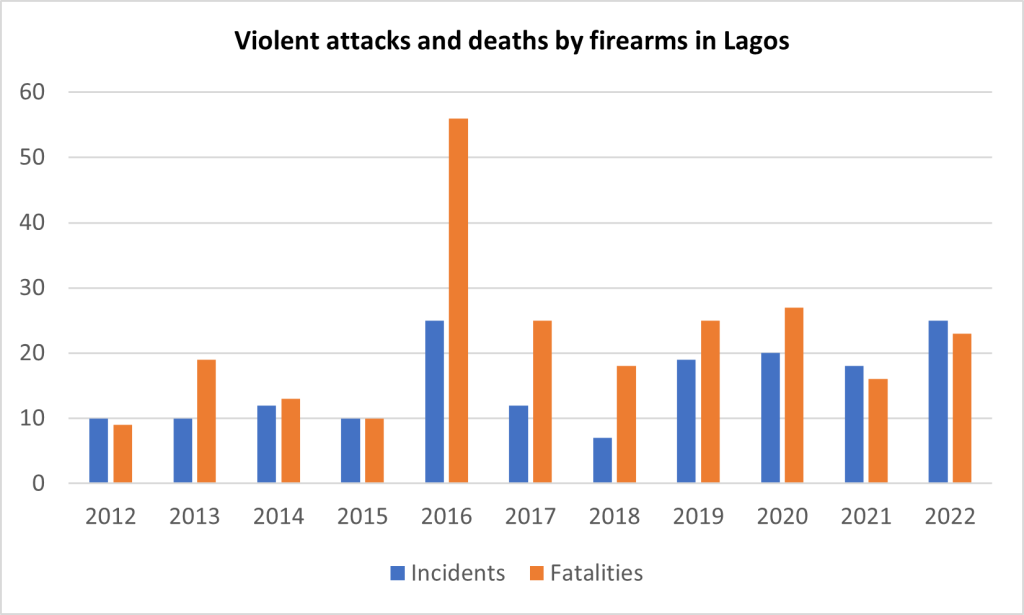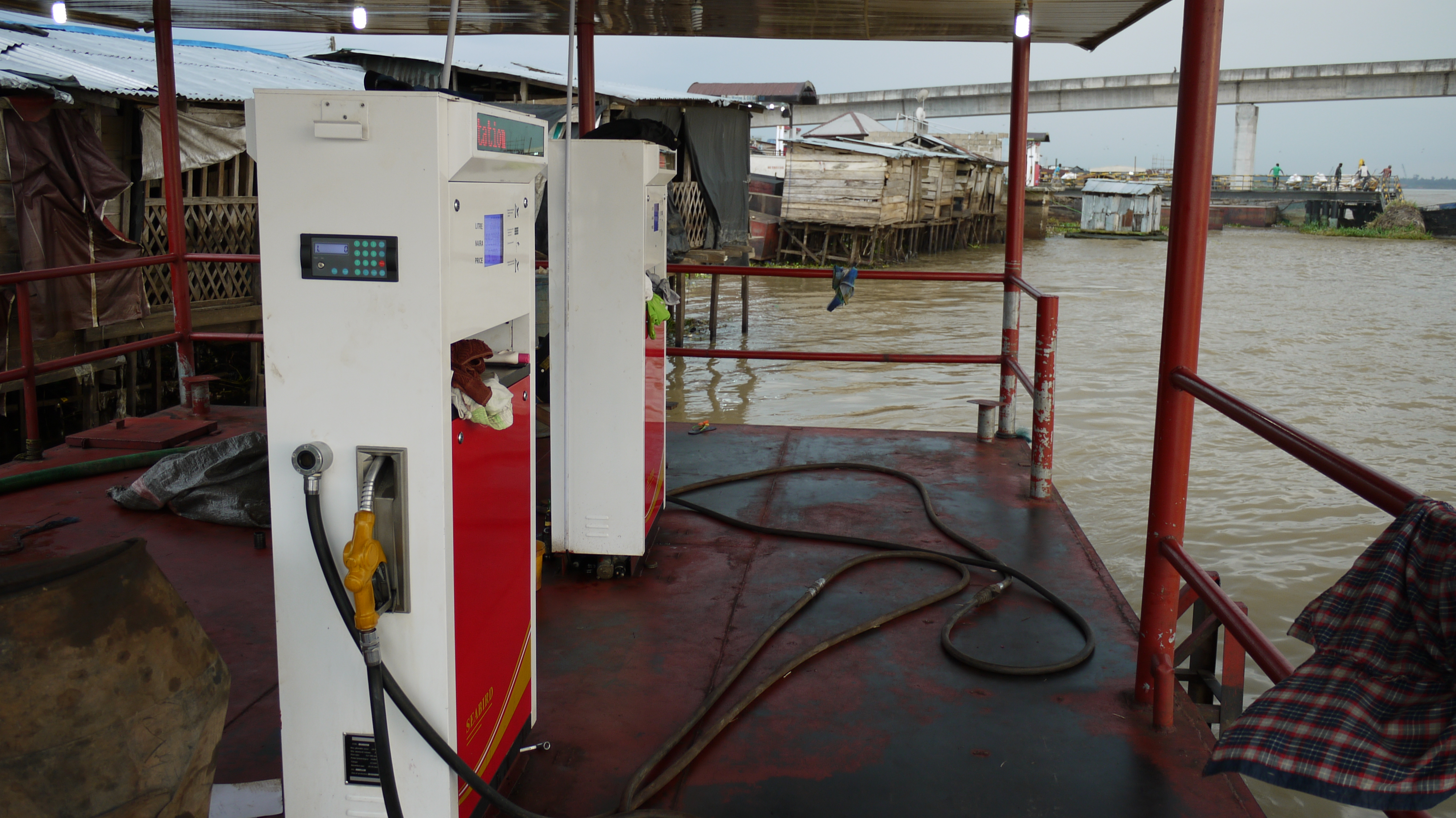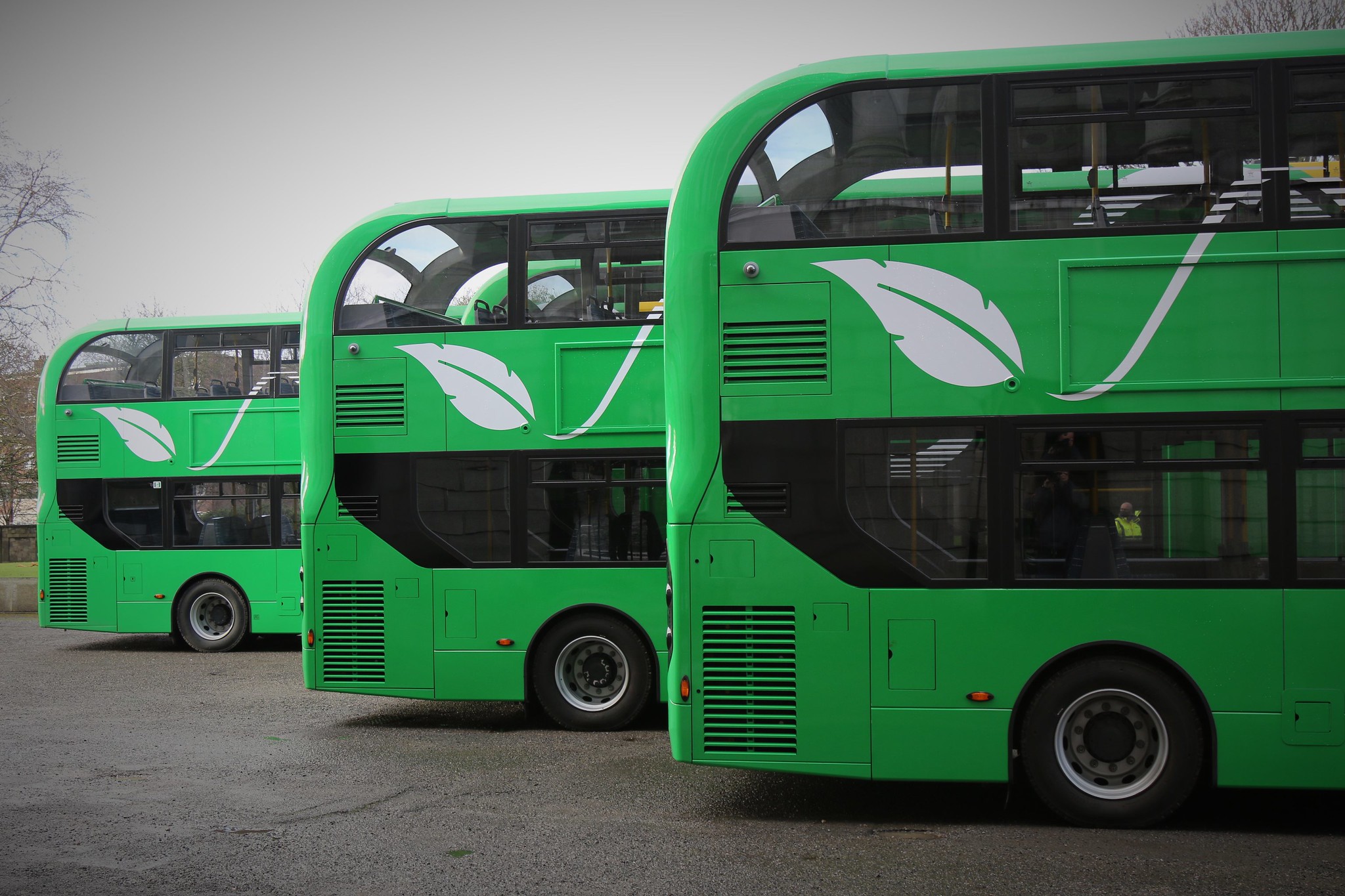Cities present complex relationships between urbanisation and transnational organised crime. Oluwole Ojewale analyses how illicit arms shape urban violence and are leveraged by criminal groups in Lagos.
Urban spaces have emerged as the new frontier for insecurity in West Africa. Lagos is home to over 21 million residents, the country’s busiest seaport, which controls over 75 per cent of Nigeria’s imports and 180 kilometres of coastline. The city is a huge and accessible market for the West African economy. Urban and organised crime are some of the most pressing social issues confronting Lagos, constituting a serious public safety and security challenge.
Arms trafficking routes into Lagos
The first entry point is the waterways. A total of 21,548,608 weapons and ammunitions were shipped into Nigeria illegally between 2010 and 2017. The largest cache of live ammunition, totalling 21,407,933 rounds, was intercepted at the Lagos Port Complex in November 2010, while 1,100 pump-action guns were confiscated at Tin Can Port in September 2017.
Illicit firearms also flow into Lagos through border towns and peri-urban communities, such as Ikorodu, Ojo and Badagry. The Seme axis of Lagos State is the primary route for smugglers, despite the heavily armed security personnel and checkpoints that dot the road. According to one of the smugglers, ‘here, anything goes … You can transport guns to Ghana, Togo if you work with the right person … You have to know the police, customs, army and others if you want to do the business successfully on this route.’
The last trafficking node is the trans-Saharan, north–south trading route. Approximately 4,600 kilometres in length, the route was originally conceived as a highway to move goods from the agricultural south to food insecure regions in North Africa. Although the project is yet to be fully developed, the large expanse of road that is expected to link Algiers and Lagos has become a notorious route for smuggling people, minerals, and arms over the years.
In May 2019, members of an international arms smuggling syndicate operating in parts of West Africa, the Sahel region and North Africa were arrested along the Nigeria–Benin border with four AK-47 rifles, five English pistols and a total of 6 000 AK-47 live ammunition rounds. The syndicate specialises in smuggling weapons and ammunition from North Africa through the Sahel region and supplying them to criminal end users – including armed robbers, political thugs and kidnappers – in West African countries, with Lagos being one of their major destinations.
Drivers and enablers of arms trafficking
The primary drivers of arms trafficking include: visible networks of transnational criminal groups, thriving gangs, and cults that require arms. In Lagos, kidnappers, armed robbers, petroleum pipeline vandals, ethnic militias, members of the road transport workers, commerical motrocycle riders, cultists, and criminal gangs operating in various neighbourhoods across the city also provide a ready market for arms traffickers. The much-dreaded cultist gands – popularly known as No Salary Boys, Awawa Boys and One Million Boys – terrorise the city residents. The Lagos Police Command confirm that these gangs procure their illicit arms through local blacksmiths, armoury theft due to poorly managed police and military stockpiles in the country.
Poor urban planning is another enabler of arms trafficking in the cities. Uncompleted and abandoned buildings in Lagos have become places where criminals can plan their operations, as well as stockpile and distribute illicit firearms. Guns – including three European-made pump-action rifles and two locally made rifles – that were hidden in uncompleted and unoccupied houses and plots of land at Victory Park Estate, Osapa London, were recovered by operatives of the Lagos State Police Command’s task force.
Nine suspected terrorists, including a Chadian, were arrested in the Ijora Badia area of Lagos in an abandoned building belonging to the Bayelsa state government. Improvised explosive devices, bombs, AK-47 rifles, cartridges and daggers were recovered from the criminals.
Closely linked to the challenges posed by poor urban planning is the widespread adoption of commercial motorbikes as an alternative means of transportation due to the inability of city governments to provide transportation for the ever-increasing number of residents. The Association of Commercial Motorcycle Operators has filled the void and become an urban militia using illicit weapons to foment violence. While appraising the security situation in Lagos in 2021, the Commissioner of Police disclosed that between January and May, 320 commercial motorcycle operators were arrested in connection with 218 criminal incidents and 480 guns of various calibres were seized from them.
Impacts and implications of weapons trafficking and proliferations in Lagos
According to The Armed Conflict Location & Event Data Project data, there were 20 attacks linked to armed groups in Lagos in 2020, 18 in 2021 and already 25 up to June 2022. ACLED data show that, since 2011, these attacks have been perpetrated by various armed groups, including unknown criminals (43 per cent), the National Union of Road Transport Workers (16 per cent), cultists (7 per cent) and communal militias (9 per cent), and 241 people have died in targeted attacks by various armed groups in Lagos since 2012.

Addressing arms trafficking and the associated security challenges in Lagos requires new ways of thinking around what effective responses to arms trafficking should look like. The Lagos state government can set up a special task force within the state-funded Rapid Response Squad as a dedicated unit for monitoring arms trafficking in the city. The city government should conduct a city-wide survey on firearms ownership to provide a comprehensive assessment of firearms ownership, types, usage, patterns and sources in Lagos. The findings can help to unearth the motivations for gun ownership among the city residents and provide the basis for a disarmament program by the government. Lastly, proactive policing of urban gangs and other local crime groups that drive local arms production and usage becomes pivotal. This refers to policing strategies that police organizations develop and implement with the intent to prevent and reduce crime in hotspot areas infested with urban gangs. The city government can enact legislation on effective planning regulations to forestall the proliferation of uncompleted and abandoned buildings in the cities, coupled with efforts to ensure that uncompleted buildings are properly policed to avoid conversion to criminal hideouts.
Photo credit: International Institute of Tropical Agriculture used with permission CC BY-NC-SA 2.0 DEED





